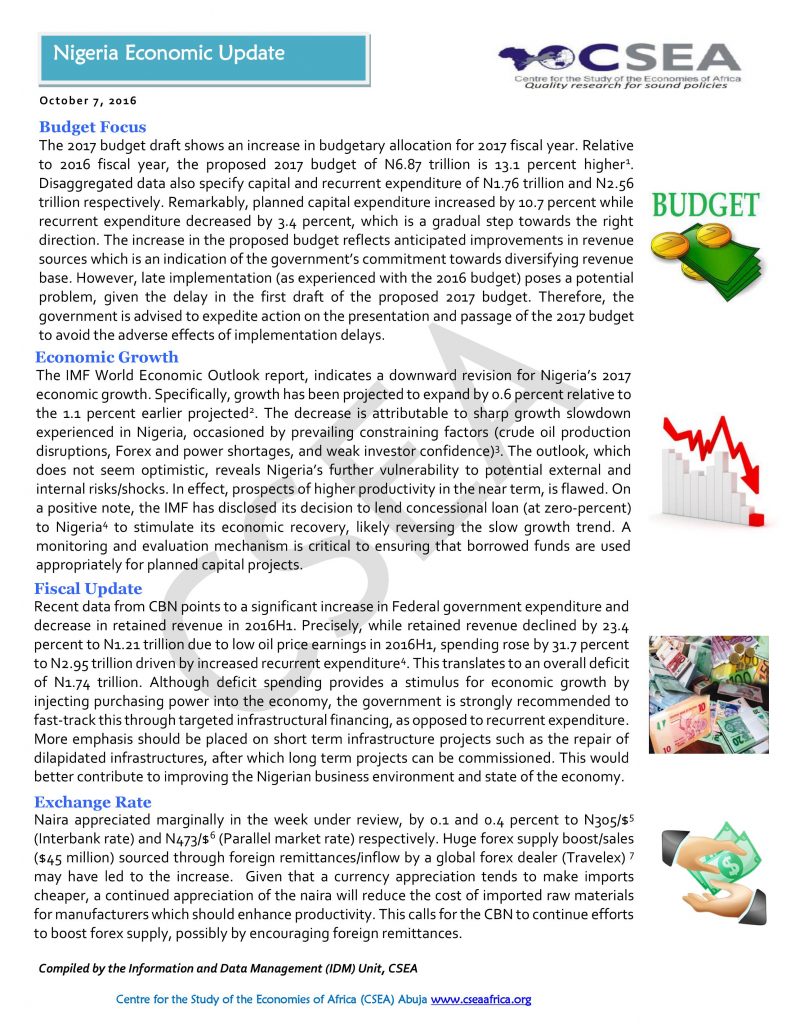Macroeconomic Report & Economic Updates

October 17, 2016
Nigeria Economic Update (Issue 43)
The IMF World Economic Outlook report, indicates a downward revision for Nigerias 2017 economic growth. Specifically, growth has been projected to expand by 0.6 percent relative to the 1.1 percent earlier projected. The decrease is attributable to sharp growth slowdown experienced in Nigeria, occasioned by prevailing constraining factors (crude oil production disruptions, Forex and power shortages, and weak investor confidence). The outlook, which does not seem optimistic, reveals Nigerias further vulnerability to potential external and internal risks/shocks.
Related
Extra-ECOWAS Trade And Investment Flows: Any Evidence Of Business Cycles Transmission
This
study investigates the effects of merchandise trade and investment flows on the
transmission of business cycles between members of ECOWAS and the major trading
partnersbetween 1985 and 2014. Total trade and FDI significantly influence the
transmission of business cycles with elasticities of 1.1% and 0.7%,
respectively in the long run. There are little variations across the major
trading partners and other measures of trade flows. Intra-industry trade flows
with all partners, EU and USA influences the cross-country business cycles with
elasticities of 1.0%, 0.5% and 1.8%, respectively.
